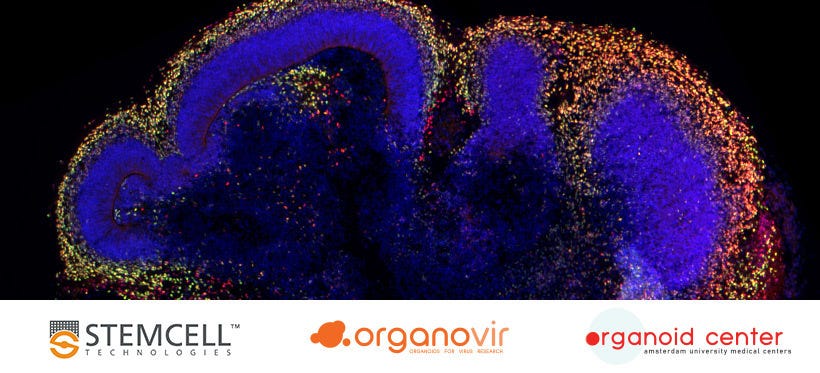Register Now: Brain Organoid Virtual Symposium
Register Now

Brain Organoid Virtual Symposium
Presented by STEMCELL Technologies and OrganoVIR
Brain organoids present a unique opportunity for researchers to study viral pathogenesis in a human tissue model. During this virtual symposium, Drs. Vivi Heine (Amsterdam UMC), Veronica Krenn (IMBA), and Melvin Evers (uniQure) discuss how brain organoids are providing powerful model systems for understanding health and disease in a human-specific context.
Friday, October 9, 2020
2:00 PM CEST (5:00 AM PDT, 8:00 AM EDT)
If you are unable to attend the live webinar, please register and a link will be sent to you with the recorded version.
Topics
- Development of brain organoid models to study human neural development and disease
- Modeling pathogenesis of infectious disease using brain organoids and their applications in virology research
- Application of human-specific neural disease models in therapeutic development

Vivi Heine is an Associate Professor of neuroscience and clinical genetics at Amsterdam UMC. Her research focuses on identifying and understanding the contributions of glial defects in neurodevelopmental disorders, and developing iPSC-based model systems to address basic and translational research questions.

Veronica is a cell biologist working as a postdoctoral researcher in the laboratory of Jürgen Knoblich at the Institute of Molecular Biotechnology (IMBA). There, she established several brain organoid infection models to study the impact of viruses on brain development. Using these models, she described unique aspects of viral pathogenesis and their contribution to brain damage.

Melvin Evers is based at uniQure’s Amsterdam research hub, and is focused on the development of gene therapies for patients with serious unmet medical needs. He has been closely involved in the preclinical development of AMT-130, the gene therapy candidate for Huntington's disease, now in Phase I/IIa, as well as the early development of a gene therapy for spinocerebellar ataxia type 3 (SCA3).


